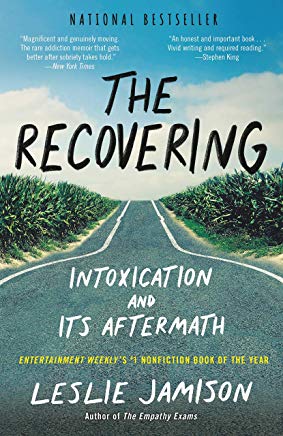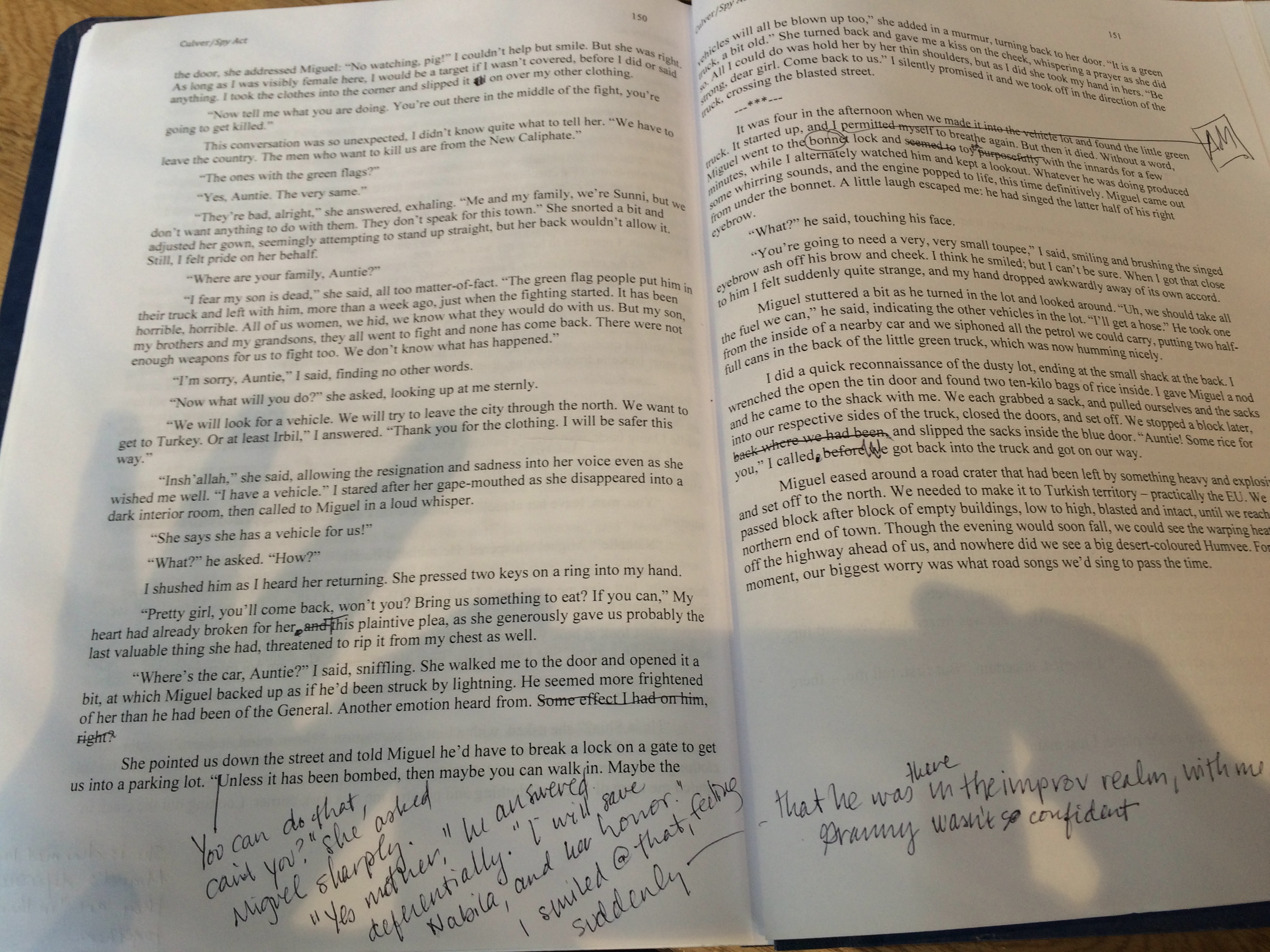Dad has inspired me with his book reviews. When he reads a good one – and he’s reading all the time – he writes it up with his characteristic wit and his eye for the import of the times. Pretty impressive, as he’s 90.
Last year my reading was more often than not on Kindle. I was suddenly swayed by the tech argument for e-readers: ohhh, the convenience!! I also started receiving book review newsletters, which whetted my appetite.
At first, I bought books on Amazon.com. BAD! ALL BAD! Expensive! Awful Amazon! When I figured out it was just as easy to use my DC library card, things got smart, and quick. Another bonus of the library catalog is that the thing you’ve just heard of (like some new book) is not always available, so you poke around and find things you might not otherwise have read. Dad has regaled with fascinating non-fiction he reads on tech, the economy, academia, whatever’s at the library. The books I’ve read cross a wide selection too, because I’m constantly being swayed by reviews.
My membership on Goodreads had languished, but since Kindle and Goodreads talk to each other, I started to see a stack of books piling up in my wake. I felt a bit proud of reading so much. This year I resolved to read 50, almost one per week. Instead, I will hit 50 this month! In the spirit of book clubbin’, and inspired by Dad, I’m writing a few reviews. This week:
Non-fiction
![City of Thorns: Nine Lives in the World's Largest Refugee Camp by [Rawlence, Ben]](https://images-na.ssl-images-amazon.com/images/I/51lP25F5STL.jpg)
This book is heavy going, though not terribly long. The content is stunning and stark. It is a monumental history lesson about the Horn of Africa and the roots of Somalia’s al Shabab terrorists. The book dives right into the “temporary-permanent” tents of over half a million refugee families, showing how precariously they earn a living, how they’re officially not allowed to work or travel in Kenya, and the outsize force smuggling has (including Shabab smugglers) in the camp economy. The book shows the necessity of the thankless international humanitarian aid, and also how cynical it is: they actually cut rations to encourage refugees to ‘return’ to Somalia during an all-out war.
Through all that, you can’t find a cliché to save your life: no rags to riches stories, no bleeding hearts making all the difference, no innocents versus evils. The author questions the humanitarian response, in part because this particular camp has hosted refugees for decades. It’s been a total dead-end, as Somalia continues to be such an unsafe place. What choice is there? No camp, and innocents in harm’s way? Or an eternal camp, where people’s lives are curtailed?
An inventor arrives with a plan to train “illiterate” women refugees in solar energy. He bosses people around, makes promises, and accomplishes precisely nothing. A young woman puts her all into studying and passing qualifying exams, but can’t extract herself and her whole family on the fractional salary she eventually earns. Young men there are desperate to get married but their ability to support a family perches precariously on the bizarre “planned economy” of the camp. Refugees from different conflict zones in East Africa are all housed there, meaning they have their own internal disputes that can turn very dangerous.
It’s more scorching than uplifting. The inhabitants’ perspectives are reduced to a day or a week ahead, and there’s a gnawing sense that their lives are “on hold” – but this is life for them. Some few manage to chase something that is meaningful to them – family, work, their own internal philanthropy. But the little slice of Dadaab’s reality covered in the book is the tiny tip of an iceberg of humanity who’ve had their dreams pretty thoroughly thwarted.
![Hunger: A Memoir of (My) Body by [Gay, Roxane]](https://images-na.ssl-images-amazon.com/images/I/41A4wnJmJ8L.jpg)
Struggling with overweight seems like the epitome of a ‘first world’ problem. So wealthy we can eat whatever we want, enough to push us past healthy limits. And all of us with our whiny tales of woe – me included. Our parents push us towards thinness, or make us clean our plates, or both. Our media and social cues shove a skinny ideal down our throats. We waste so much mental energy on the illogical pursuit of weight loss, convinced that everything in life would be better if we could just get rid of these few extra pounds… (thanks to Geneen Roth and Susie Orbach for giving me ways to talk and think about this issue since I was just a kid.) My brain power, loving family and intellectual interests (like feminism) should have cured me of this concern a long time ago, but in fact I’ve spent a lot of time on it in my life – time I might usefully have spent inventing or writing, or napping. As wrong as we know it is, being concerned about one’s weight doesn’t abate easily, or permanently.
Roxane Gay’s story of overweight reflects and refracts all of that back with a strength and precision that is breathtaking. Her overweight, which is significant, is rooted in horrific trauma she suffered at twelve years of age. She lays out her lifetime of dealing with the weight itself, and with her family, her occupation, her loves, her physicality, even her daily tasks of life – all of which have been affected. What she goes through is so distressing that the reader can’t help but finally, urgently, tearily empathize – even if our baser instincts are, first, to judge her like everyone else does, in part because we’re still judging ourselves.
The social disdain for anyone who is obese is bottomless. When I see obesity I paint a particular narrative on it, a set of my own clichés, that are the opposite of compassion or thoughtfulness. It’s a shorthand like any prejudice, but one that is particularly cruel since we have something in common: we are both women, we both face the same demon, and I should damn well know better. Gay’s book stopped me in my tracks. Every day as I navigate the world and see the overweight people in it, I am smacked over and over again that my own thoughts are at odds with my beliefs. If you asked me I’d say that all people have something to offer, that Fat is a Feminist Issue (Susie Orbach), that the media and society are wrong about the worthiness and uniqueness and value of people with overweight. I would say Body Positivity all the way!
My early training runs deep, but that whole internal system has been deeply shaken by reading Gay’s book. By opening herself up with such incredible vulnerability and telling her truth, she does an end-run around any mental cliches about weight and body positivity. She draws out genuine compassion (empathy, if I’m not fooling myself) but it’s not that she ever asks for it. Instead what I hear in her memoir is pride, alongside the pain. She should be proud, frankly – she has been treated abysmally but emerged amazing, inspiring, aglow.
I’m still feeling aftershocks. Someday I hope we manage to kit out a society that would rather hear and help and heal a little girl, than save and glorify the beasts who hurt her.
I’d heard of the flaneur – the wealthy guy walking around and having adventures about town – but the word flaneuse is said not to even exist. Women walking around for hours without a direction in big Western cities is relatively new. A century ago it was still fairly unsafe: if you weren’t accosted by menfolk, you’d be harangued by family. Apparently there was always something else women should have been doing, rather than walking – like needlepoint, I assume, or tidying.
I’m sure there are other things I could be doing instead of walking aimlessly – like writing or learning to cook a good stir-fry – but
Walking
is
Joy.
How many days have I spent wandering? I’m remembering Albuquerque, Boston, Chicago, Denver… well, I don’t know if I can go through the whole alphabet but I bet I could get close! I remember Krakow in evening sun, the winds whipping through Rome; crunchy snow in Washington; a Pride Parade in Mexico City; remembering to look up in Quito; being thoroughly lost in Guatemala City, Paris, Florence, Sevilla, Barcelona; peering disinterestedly in at tango classes in Buenos Aires, a book club in Lyon, indoor soccer games in Bogota, a rock climbing gym, a cooking class, an argument with a cop, bargaining with a bus driver, all kinds of people doing all kinds of things, in all kinds of places at all times of day and night.
Steadily checking in with humanity, just seeing what they’re up to.
I can’t say these are some category of “happiest memories” because what I remember is the bland part, the walking, how sometimes my knees or feet hurt at the end, or how I got a mediocre cinnamon bun but saw a couple of dogs playing, or remembering some interesting person I talked to. One thing I know, and this is an important one because I’m a ruminator: wandering like this breaks patterns, and makes you see in a new way, enough to get away from whatever is on your mind.
In Julia Cameron’s The Artist’s Way you learn to make Artist Dates with yourself, where you leave yourself open for soaking in the world to fuel your own inspiration. That’s the stone-cold definition of the flaneuse.
![The Recovering: Intoxication and Its Aftermath by [Jamison, Leslie]](https://images-na.ssl-images-amazon.com/images/I/51%2BnT%2BQEFhL.jpg)
by Leslie Jamison
I’d never read an ‘addiction memoir’, and I’ve had a subterranean mistrust for the Twelve Steps. But this one came highly recommended and reading new stuff seemed to be a pattern this year, so…
The book seems to have come from a dissertation – it’s not just her story. It’s layered with the alcoholic struggles of a range of writers, either through their fiction or their memoirs of what it’s like to be so tightly stuck to something that has turned deadly. (Caitlin Moran says something similar about smoking: It’s like buying a fun baby dragon that will grow and eventually burn down your f***ing house.)
Given the old trope about how the best writers are laced with crazy (addictions, interpersonal catastrophes, mental health issues), the book looks at addicted writers and at the author to see if crazy is what fuels their brilliance.
None of the answers provided are cut-and-dried, including that one. The Twelve Steps are not a silver bullet but they’re workable for some people, when there’s commitment from inside and support from outside. Jamison describes a ragtag sort of a halfway house that is run by recovered alcoholics. It was ad hoc, seemed on the edge of financial collapse, and was probably far from the recommended treatment regimen – which made it seem all the more in tune with the people it served. Beautifully written and has kept me thinking for months.
This was not a book I thought I’d be reading – it came from some book recommendation e-mail newsletter. It’s a dry, matter-of-fact re-telling of Janet Mock’s life, including transitioning to being a woman. As with Gay’s book above, I heard my own unvoiced prejudices snapping and popping as I read.
I had wondered if I would be able to ‘get into’ this book, which for non-fiction seems to be a function of one (or both) of two things: having something in common with the author, and having a compelling story. Mock got me with both. What is so striking about her alienation as a kid – how she knew she was different – is very human. Not everyone feels it (if they did, who would we all feel so different from?) but I think lots of us do, and we recognize how it flattens the soul. Her particular difference challenges all these fundamental ideas society has about a binary set of possible identities, so her path was awfully rough and painful.
The compelling story is how she bravely took up the mantle of her difference from a frighteningly young age, come what may. She played with her looks, her name, her identity – even though the world rained opprobrium down on her – and eventually found a path to transition. That doesn’t mean her struggle ended with a surgery and some post-op – but it’s uplifting to see her make it that far.
I got my internal prejudices slapped again, just to remind me they are there. (Between the authors in this list, I’ve taken a bit of a beating in my reading this year!) When she hadn’t told her partner yet about being born male, I thought, Won’t he be upset/grossed out/feel betrayed? Will he even stay with her once she tells him? This seemed a natural reaction on my part – I didn’t give it a second thought till I was curled up in bed later that night.
Why on God’s green earth should he be “grossed out”? What part of “she’s a woman” didn’t I get? If he were to have that kind of a reaction, that says more about him than about her. (Sure says something about me!) I was wrong to think of her as aberrant in some nebulous way, when she – like the young adults in the refugee camp, the women trying to walk around unmolested and enjoy the world, like Roxane Gay, like the writers hounded by alcohol – just wanted to live her life, give her best, be herself. She had weathered the crap thrown at her and she deserved to be treated and seen as a whole, normal, person, no more right or wrong or aberrant or natural than anyone else.
Rollicking good reads. I wrote dozens of book reports in elementary school but this first attempt at book reviews to share has been eye-opening – it’s a lot harder to summarize and comment on others’ work than I realized. I hope someone gets inspired to read one or another of these: clearly there’s more to it than soaking up some new knowledge. Anyone who wants to have a virtual book club meeting on any of these books – count me in!


![Flâneuse: Women Walk the City in Paris, New York, Tokyo, Venice, and London by [Elkin, Lauren]](https://images-na.ssl-images-amazon.com/images/I/412gFkjcGLL.jpg)
![Redefining Realness: My Path to Womanhood, Identity, Love & So Much More by [Mock, Janet]](https://images-na.ssl-images-amazon.com/images/I/51QdFLjEZEL.jpg)





